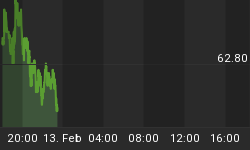In his congressional testimony today, Greenspan said it was impossible to ascertain the effect on interest rates and national savings of the larger budget deficits which will result from the transition to private social security accounts. He took this position in part because he claims that it is impossible to know how much the existence of over ten trillion in unfunded federal liabilities is currently discounted into long-term bond prices, and therefore the effect on interest rates of replacing contingent liabilities with actual debt is unknown. Give me a break.
It seems obvious to me that the existence of tens of trillions of dollars of unfunded liabilities have been completely ignored by the bond market. After all, considering that these obligations are so large as to render the U.S. government bankrupt, the market obviously either ignores them completely, or has assumed that they will be repudiated. In addition, since the Federal Government itself neglects to include any of these unfunded liabilities in its own calculation of the national debt, why should Greenspan assume the bond market does?
Greenspan's claim that increasing the deficit to fund private social security accounts will not adversely affect national savings is absurd on its face, unless you assume that all of the money placed in such accounts is invested in government bonds, and that there are no administrative or management fees associated with such accounts. However, as the administration assumes that the majority of this money will be invested in the stock market; national savings could decline dramatically as a result of such investments.
Regardless of how the nature of the government's liabilities changes, one thing is certain, un-funded liabilities do not have to be serviced with current interest payments, while funded ones do. Therefore, any transition from contingent to funded debt will immediately increase the net interest expense of the Federal Government. Considering that the funded portion of the national debt is financed with short-term paper, at an average maturity of about 2-3 years, and given that short-term interest rates are likely to rise considerably over time, and further given that any money needed to make higher interest payments must itself be borrowed, it should be clear that diverting social security taxes toward private accounts and borrowing the difference will put upward pressure on interest rates, and reduce national savings.
Finally, on an unrelated but equally incredulous note, Greenspan also commented that while he knows that one day America's large external debts will create a problem, he cannot figure out what that problem may be. Perhaps the chairman would like to give me a call, and I will happily clue him in.
















